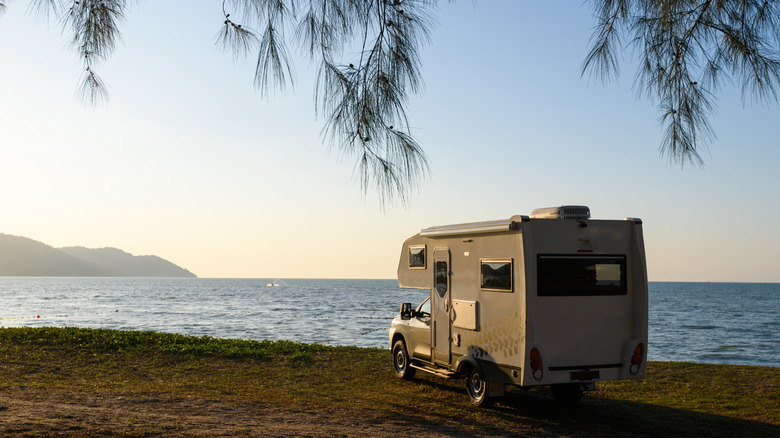Life on the road in an RV offers a whole different level of freedom and adventure that most road-trippers can only dream about. From exploring national parks across the country to visiting scenic destinations, parking up next to beautiful lakes, and creating new memories, RV travel offers unmatched flexibility compared to traditional hotels or vacation rentals. Better yet, you get to bring all of the comforts of home with you — which means that you can enjoy a good night’s sleep in your own bed and a hot meal with familiar kitchen tools, no matter where or when you go.
That said, owning an RV also comes with its share of challenges and sneaky dangers you can’t ignore. This includes some pretty frustrating situations like struggling to find available campgrounds during peak season, dealing with routine maintenance issues, underestimating how difficult it is to tow a trailer in the first place, and even getting caught up with unexpected breakdowns and accidents. And it’s precisely during these more stressful moments on the road that one major reality of RV travel becomes even more clear: It requires a lot of planning, patience, and proper preparation.
However, out of all these challenges, there’s one mistake that stands out from the rest for being particularly harmful and costly, yet completely avoidable: misunderstanding RV insurance coverage. While some new owners might think that their standard auto insurance policy will protect their recreational vehicle just the same, the reality is a little different. After all, RVs have unique insurance needs that differ based on how often you use them, where you travel, and what type of recreational vehicle you own. And, without proper coverage, you might end up with thousands of dollars racked up in out-of-pocket expenses if something goes wrong during your trip.
Understanding how RV insurance works
If you’re preparing to head out on your first RV trip, the most important thing you need to do is to secure proper insurance coverage. Unlike standard auto insurance, RV policies are specifically designed to address the unique risks associated with driving and towing these larger, more complex vehicles. As a general rule, these types of policies typically include things like liability coverage for accidents, comprehensive protection against theft and natural disasters, and even collision coverage for any damage from accidents regardless of fault.
That said, not all RV policies are made equal, and the exact coverage you need depends on your specific RV type. For example, motorhomes need a policy similar to traditional car insurance, but with higher coverage limits due to their size and value since these types of vehicles are legally required to have insurance. Meanwhile, travel trailers and fifth wheels — which you would tow behind another vehicle and don’t legally require insurance — still benefit from separate policies that’ll also protect them while parked or in transit. This, because although your standard auto policy might provide some liability coverage, it likely won’t cover all damage to the trailer itself.
Even if you’re good at keeping your RV safe and functional with routine checks, having insurance means that you’re protected against most unexpected events that go beyond your control and can cause thousands of dollars in repairs. Without a safety net, a single incident could easily cost more than years of premium payments — potentially forcing you to abandon your investment altogether. Ultimately, the peace of mind that comes with proper coverage is well worth the annual investment, which can cost between $500 and $1,500 for most RVs, depending on the type, value, and coverage levels.




